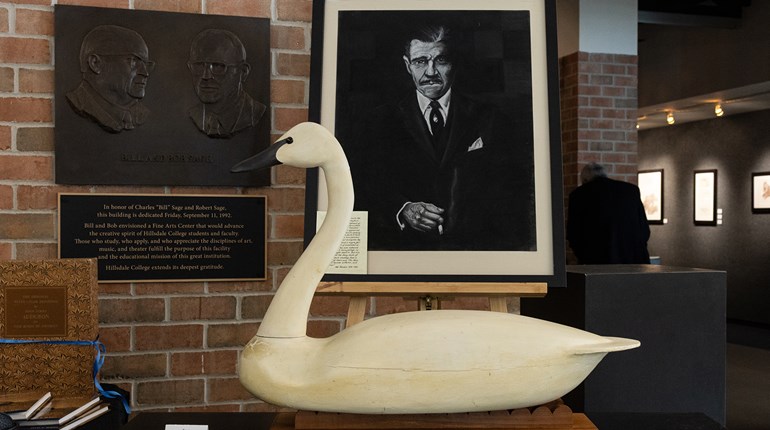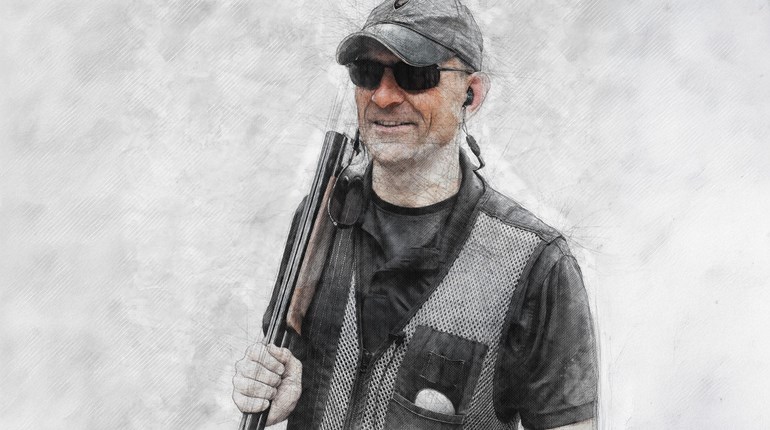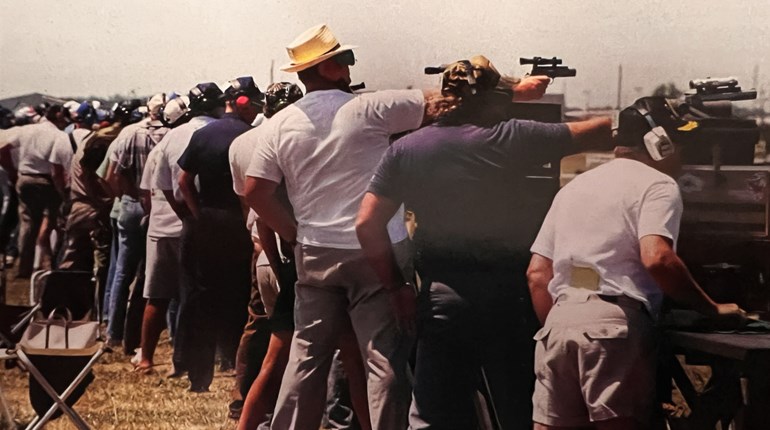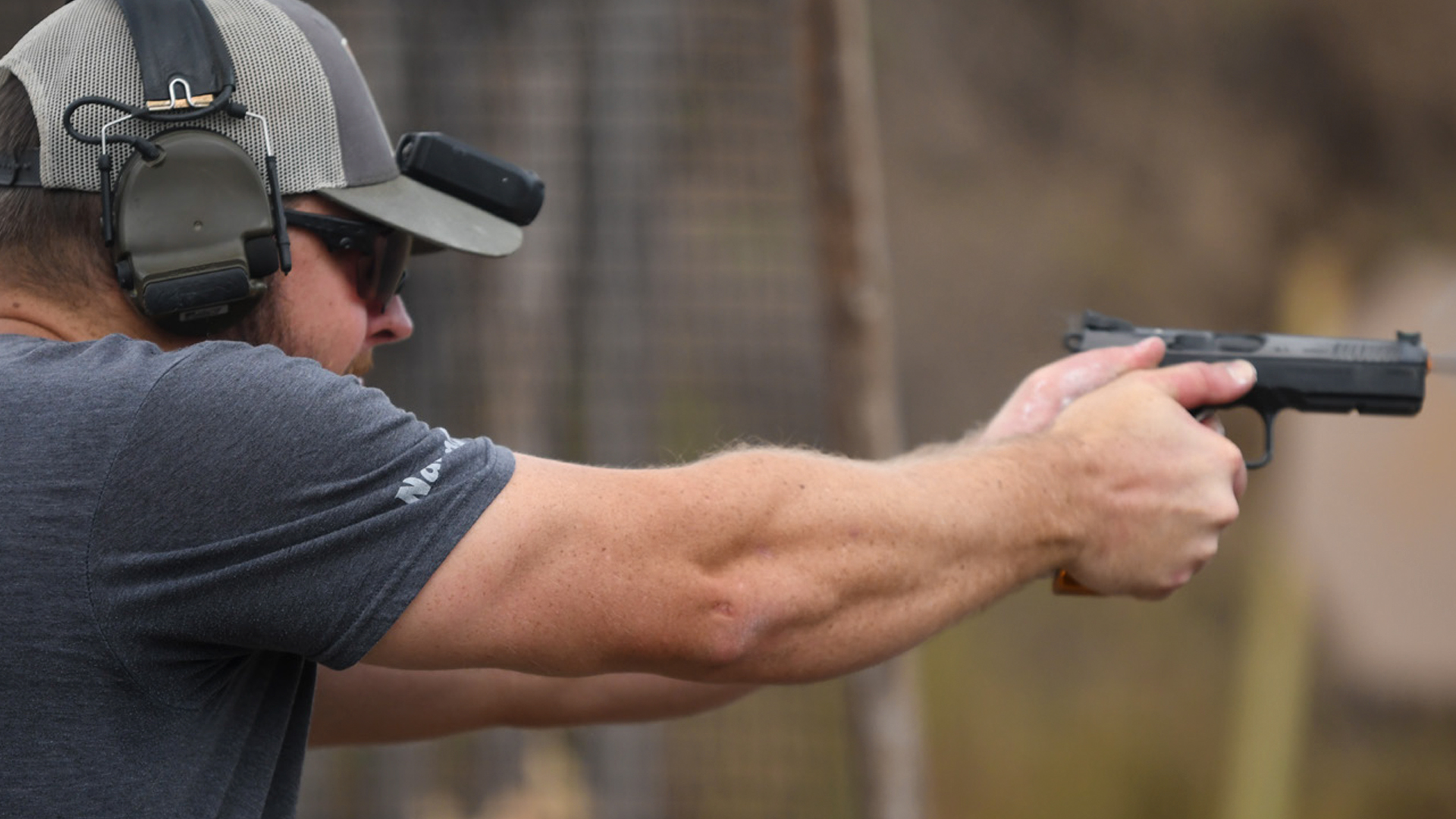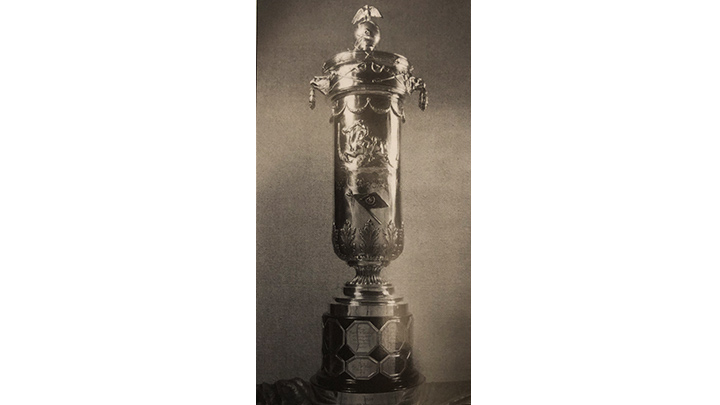
The Cavalry Cup joined the growing register of National trophies in 1910 when the Marines donated it in appreciation of the Cavalry's noble act during that year's National Trophy Team Match. Capt. William Harllee, whose National Match future included Executive Officer duties in 1919 at Caldwell, NJ, captained the team that encountered the following incident as described in Arms and the Man:
"Lieutenant Coyle, of the Marine Corps, was sitting back of the line at a large telescope. When the first shots were fired he was looking through the glass. His nerves, as were those of other watchers, were strung to the extremest tension. At the crack of the rifles he sprang to his feet and throwing his arms in the air cried aloud, 'Good wind! Good wind!' The Executive Officer was upon the ground, himself a spectator and observer of what took place. He ruled the entire Marine Corps Team Skirmish run out on the grounds that the act of Lieutenant Coyle constituted an infraction of the rules against coaching.
No one on the ground believed Lieutenant Coyle capable of an unfair act. As a matter of fact if he had wished to coach the team in defiance of the rules, any one of a thousand secret ways might have been employed. His act seems to have been simply one of irresistible impulse. It had no effect upon the score of the Marine Copt Team for good or ill. All the teams were taking the same wind, and it was an easy one to gauge.
No team protested the score of the Marines, and it would be difficult to get any other team to do so, because from the beginning to the end, the record of our sea-soldiers in the National Matches has been of the best. Their history is clean. They have never even been suspected of doing unfair, unsportsmanlike or unworthy things. It was a hard blow to Captain Harllee and his gallant, hard-shooting men. The sympathy of the contestants, the Executive Officer and every one at Camp Perry was with the Marines.
The Captain of the Cavalry team, Lieutenant Clopton, whose team would profit by the displacement of the Marines, has, it is understood, addressed an appeal from the decision of the Executive Officer, requesting that the matter be referred to the National Board for the Promotion of Rifle Practice for determination.
A more sportsmanlike incident than this appeal of the Cavalrymen cannot be found in the annals of any competition. The attitude of the Cavalry team is that the Marines are honestly entitled to second place, that their disqualification was upon a technical point growing out of an incident beyond the control of the team captain or his men, and therefore one for which they should not be made to suffer such an awful penalty."
See more: 10 Interesting Facts About The History Of The Shooting Sports













